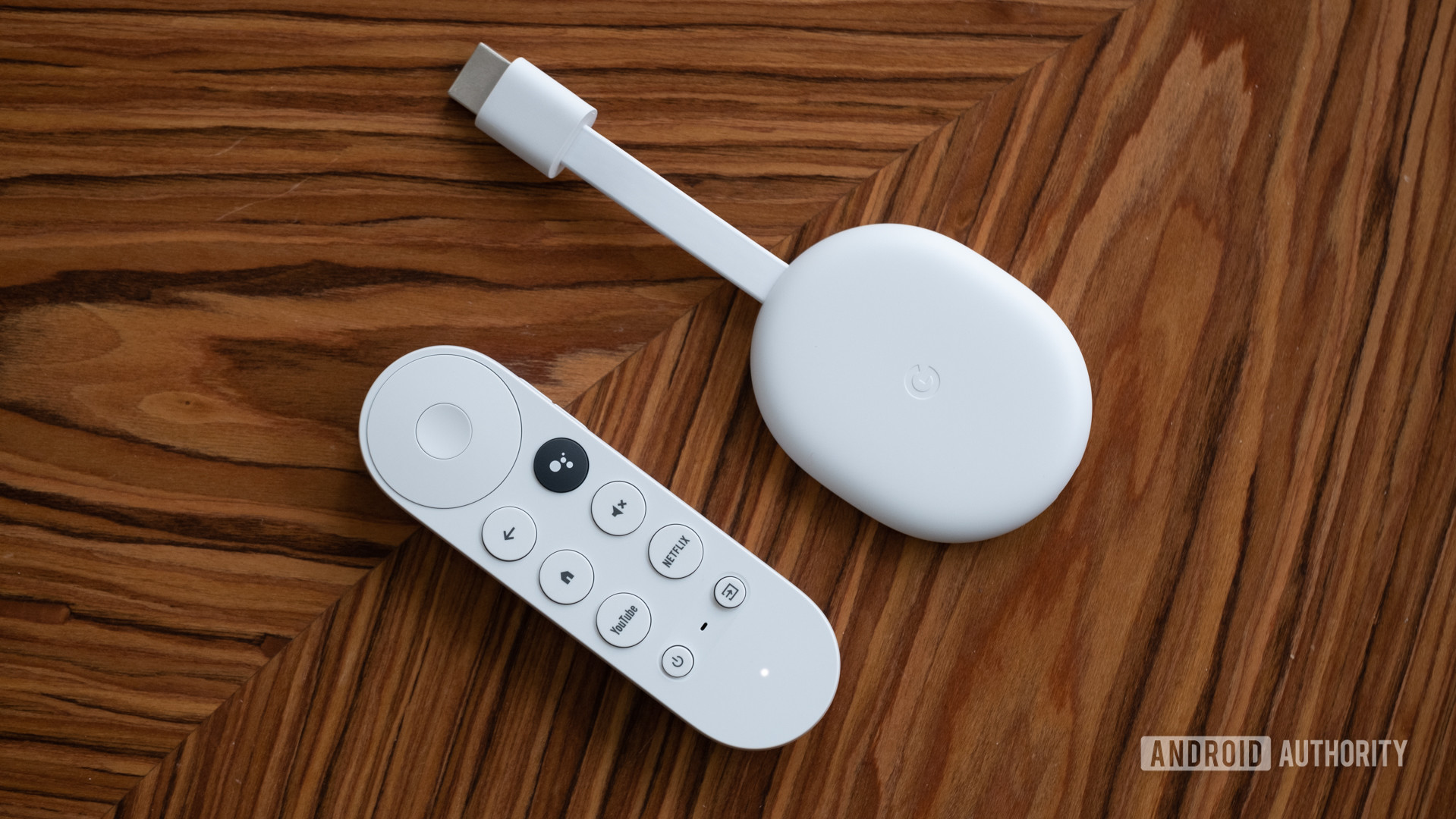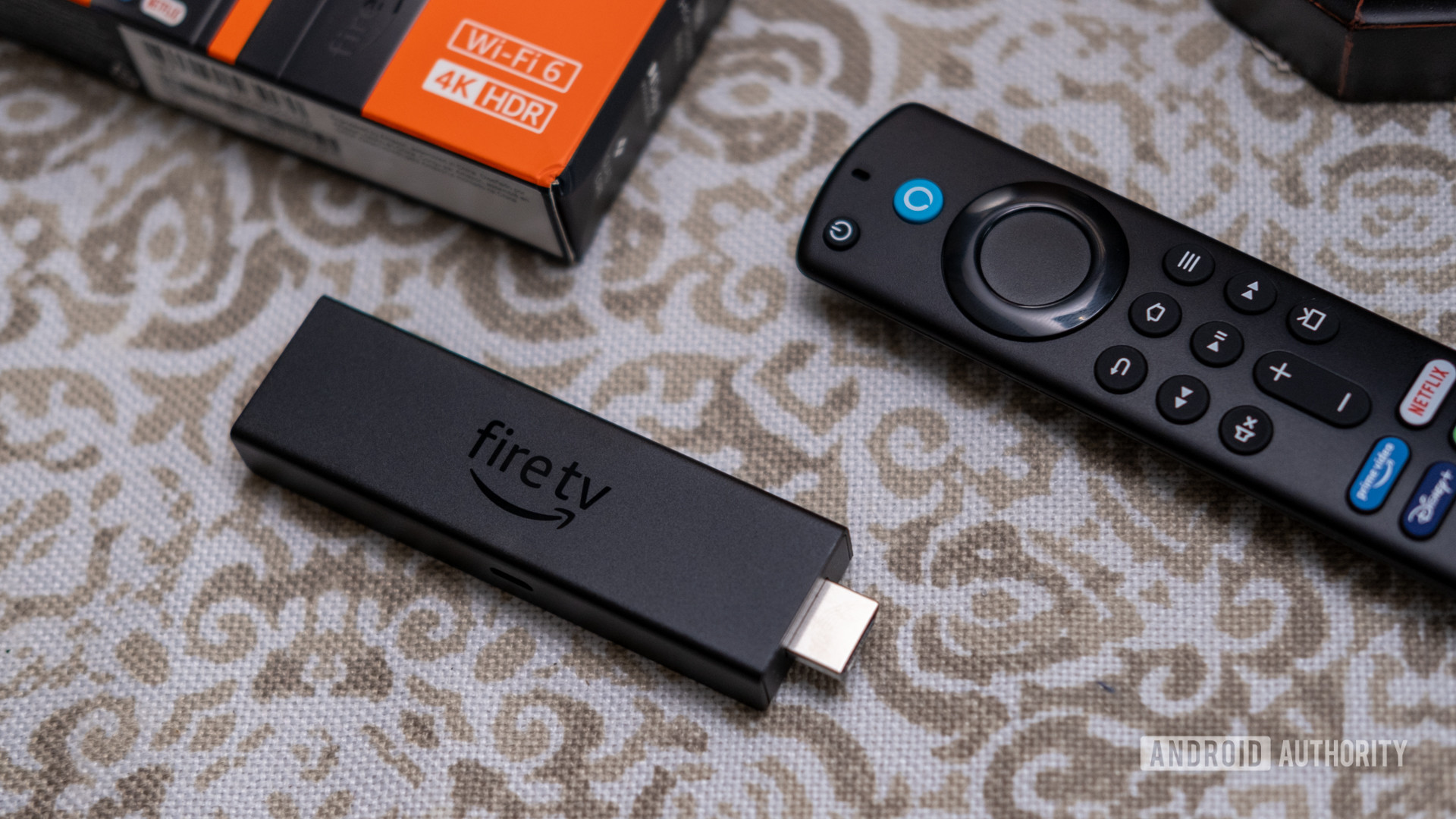Affiliate links on Android Authority may earn us a commission. Learn more.
If you're buying a cheap streaming device, just make sure it has this one thing
Published onNovember 21, 2021

I should preface this article by admitting that I’m not really the type that cares about getting the best possible quality in my home theater system (if you can even call it that). I own a 4K television, but only because it was really cheap at Walmart. I have stereo speakers hooked up to a small amp to improve the sound quality a bit, too. I also use a Chromecast with Google TV exclusively to access my streaming platforms.
What I’m trying to say is that I’m not too picky when it comes to streaming media.
I purchased the Chromecast with Google TV because I was already using a Chromecast Ultra, and I liked the idea of a Google-made TV platform. Plus, the $50 price tag and pink-ish Sunrise colorway really sold me on the device.
But lately, I’ve been running into an issue with the Chromecast with Google TV that I didn’t foresee happening. I am constantly running out of storage space. I can no longer install new apps on the device without deleting something else. It’s annoying, especially because I’m trying to install apps for streaming platforms that I subscribe to.
8GB (but really 4.5GB) is the standard

I subscribe to Netflix, Hulu, Disney Plus, Shudder, and thanks to a recent T-Mobile promotion, Paramount Plus. I use the free version of YouTube, a.k.a. the one riddled with advertisements. I also have Spotify Premium. There isn’t enough room on the Chromecast with Google TV to install these seven apps.
The streaming device has 8GB of onboard storage, 4.4GB of which are available for app storage. If I want to install another app or install an update to the Chromecast with Google TV, I need to go into the settings menu and manually clear the cache on some of the apps I do have installed. Dealing with 4.4GB of onboard storage on my streaming device is like dealing with 2010-level smartphone storage all over again.
The Chromecast with Google TV isn’t the only culprit here. Most budget-friendly streaming devices only have 8GB of storage, of which only about 5GB are available to the user.
I do not miss clearing my device's cache in order to install software updates.
There is a way around this. You can expand the storage on the Chromecast with Google TV, Amazon Fire TV Stick 4K Max, and other cheaper streaming devices. It just requires a bit of know-how and some extra hardware like a USB-C hub and an SD card.
Don’t get me wrong, I’m thankful these cheaper devices offer expandable storage, and it’s something I might check out for myself — the Chromecast with Google TV is pretty great otherwise. But maybe it’s just my naiveté that got the best of me, but I didn’t think this would be a problem on a device that’s built to house your media-streaming applications. I personally don’t think seven apps is an outrageous number to expect to install without investing more money into the platform.
Or maybe that’s just the way of things. If you want to install more than a handful of apps, you either need to get creative and expand your device’s storage, or you need to invest more money up front and go with an NVIDIA Shield TV ($150), Amazon Fire TV Cube ($140), or Apple TV 4K ($180). Either way, you may be destined to shell out more cash.
How many apps do you have installed on your media-streaming device?
I was hesitant to write this article because this seems like the most “first world problem” one could imagine. But I’d rather warn a few readers about streaming device storage issues before they make the same mistake I did. If you’re planning on buying an inexpensive streaming device this holiday season, make sure it has enough storage space for all your apps.